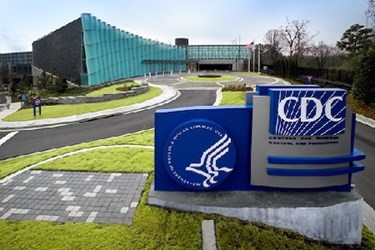CDC Issues Warning For Open-Heart Surgery Devices

By Christine Kern, contributing writer

Contaminated devices are putting patients at risk during surgery, according to CDC.
Earlier this year, Olympus was plagued with problems surrounding its duodenoscopes which were linked to a number of deaths and infections due to design flaws that made cleaning the instruments difficult. In the wake of the complications, Olympus engaged in a voluntary recall and redesign of its scopes.
Now, the CDC has issued a warning for patients who have undergone open-heart surgery using contaminated LivaNova PLC Stöckert 3T heater-cooler devices, which could be putting patients at risk for life-threatening infections. The CDC states the contamination may have occurred during the manufacturing process. Each year, more than 250,000 heart bypass procedures using heater-cooler devices are performed in the United States. These units are essential to such surgeries as they help maintain a specific temperature in the patient’s blood and organs throughout the procedure.
“It’s important for clinicians and their patients to be aware of this risk so that patients can be evaluated and treated quickly,” said Michael Bell, M.D., deputy director of CDC’s Division of Healthcare Quality Promotion. “Hospitals should check to see which type of heater-coolers are in use, ensure that they’re maintained according to the latest manufacturer instructions, and alert affected patients and the clinicians who care for them.”
The CDC warning comes because approximately 60 percent of the bypass procedures performed in the U.S. makes use of the devices currently associated with these infections. Further, the CDC estimates the risk of infection from the bacteria is somewhere between 1 in 100 and 1 in 1,000 in those hospitals where at least one infection has been reported. There is no clear correlation between the infection and death, although some patients in this investigation have died. The evidence further suggests those with valves or prosthetic products implanted face higher risk of infections.
The warning applies to all patients who have undergone heart bypass surgery since 2011. The New Jersey Department of Health scheduled a conference call on October 13 to discuss the CDC warning with 18 regional hospitals that perform cardiac surgery to help them devise plans for notifying at risk patients, according to NJ.com. While New Jersey has no confirmed cases of infection, they are being proactive to identify any potential issues. “We are also doing outreach to all health care providers so they and their patients can look for signs of potential infection. Patients may not have returned to the same health care provider so is important for all health care providers to be informed,” said Donna Leusner, department spokeswoman.
Earlier reports indicated a cluster of 12 cases reported in York, PA, with additional documented in Iowa and Michigan.
According to the CDC, the bacteria can take months to make the infection noticeable, and it could be deadly. Patients who experience night sweats, fever, and fatigue or weight loss after heart bypass surgery should contact their health care provider.
“The bacteria, Mycobacterium chimaera, is a species of non-tuberculous mycobacterium (NTM) often found in soil and water. In the environment, M. chimaera rarely makes healthy people sick,” the CDC warning stated.
“Patients who have been exposed to the bacteria through open-heart surgery can develop general and nonspecific symptoms that can often take months to develop. As a result, diagnosis of these infections can be missed or delayed, sometimes for years, making these infections more difficult to treat.”
